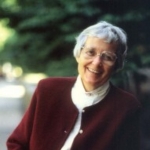Background
Phyllis Trible was born on October 25, 1932 in Richmond, Virginia, United States.

5237, 3800 Hillsborough St, Raleigh, NC 27607, USA
Phyllis Trible received her Bachelor of Arts at Meredith College in 1954.
3041 Broadway, New York, NY 10027, USA
Phyllis Trible pursued post-graduate studies at Union Theological Seminary in 1956.
116th St & Broadway, New York, NY 10027, USA
Phyllis Trible acquired a joint Ph.D. from Columbia University in 1963 with an emphasis in Biblical Studies.






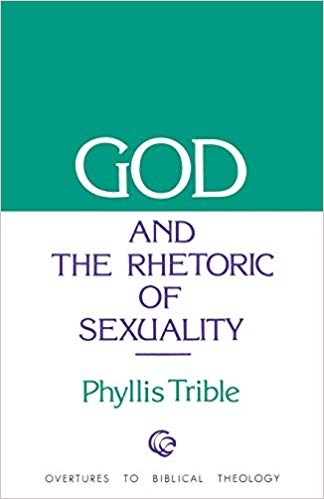
(Focusing on texts in the Hebrew Bible, and using feminist...)
Focusing on texts in the Hebrew Bible, and using feminist hermeneutics, Phyllis Trible brings out what she considers to be neglected themes and counter literature. After outlining her method in more detail, she begins by highlighting the feminist imagery used for God; then she moves on to traditions embodying male and female within the context of the goodness of creation. If Genesis 2-3 is a love story gone awry, the Song of Songs is about sexuality redeemed in joy. In between lies the book of Ruth, with its picture of the struggles of everyday life.
https://www.amazon.com/Rhetoric-Sexuality-Overtures-Biblical-Theology/dp/0800604644/?tag=2022091-20
1978
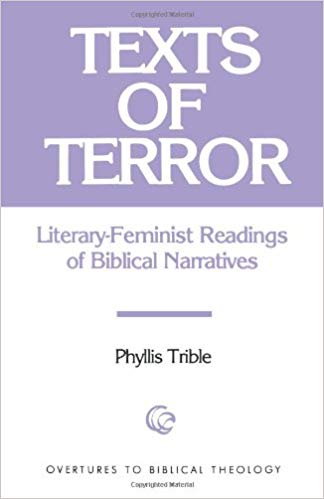
(Professor Trible focuses on four variations upon the them...)
Professor Trible focuses on four variations upon the theme of terror in the Bible. By combining the discipline of literary criticism with the hermeneutics of feminism, she reinterprets the tragic stories of four women in ancient Israel: Hagar, Tamar, an unnamed concubine, and the daughter of Jephthah. In highlighting the silence, absence, and oppostition of God, as well as human cruelty, Trible shows how these neglected stories-interpreted in memoriam-challenge both the misogyny of Scripture and its use in church, synagogue, and academy.
https://www.amazon.com/Texts-Terror-Literary-Feminist-Narratives-Overtures/dp/0800615379/?tag=2022091-20
1984
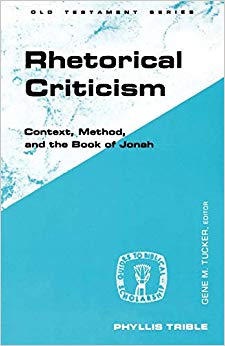
("Rhetorical Criticism" has many distinctive features. It ...)
"Rhetorical Criticism" has many distinctive features. It is the first comprehensive treatment of biblical rhetorical criticism as it has emerged within the latter half of the twentieth century. a didactic treatise that combines theoretical discussion, practical guidelines, and detailed exegesis interdisciplinary in approach, engaging the rhetorical study of the Bible with expanding developments in secular literary criticism (structuralism, poetics, reader-response criticism, and deconstruction, for example) and in the similarly burgeoning field of contemporary rhetoric itself a model of the rhetorical analysis that it describes accessible both to the novice and to the scholar
https://www.amazon.com/Rhetorical-Criticism-Guides-Biblical-Scholarship/dp/0800627989/?tag=2022091-20
1994
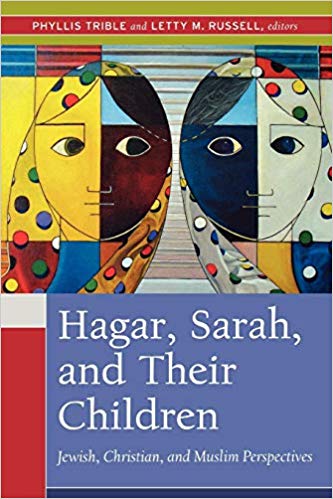
(In different ways, Judaism, Christianity, and Islam all t...)
In different ways, Judaism, Christianity, and Islam all trace their beginnings to Abraham. His wives, Hagar and Sarah, though also pivotal in the story, have received far less attention. In this book, however, noted Jewish, Christian, and Muslim scholars focus on Hagar, Sarah, and their children, from Ishmael and Isaac to their many descendents through the centuries. Moving from ancient and medieval sources to contemporary appropriations of the Sarah and Hagar story, the authors begin with an overview of the three religions - from their scriptural beginnings to their contemporary questions. They then explore how the story was developed after its canonization, in rabbinic interpretations, in the stories of Islam, and in the teachings of the early church fathers. They also present contemporary womanist and feminist perspectives. Timely, relevant, and provocative, this book provides an entrée into interreligious discussion and understanding.
https://www.amazon.com/Hagar-Sarah-Their-Children-Perspectives/dp/0664229824/?tag=2022091-20
2006

(Faith and Feminism brings together leading voices in bibl...)
Faith and Feminism brings together leading voices in biblical studies, inter-religious encounters, theology and ethics.
https://www.amazon.com/Faith-Feminism-Ecumenical-Phyllis-Trible-ebook/dp/B00R6EF2DS/?tag=2022091-20
2014
educator Feminist theologian author
Phyllis Trible was born on October 25, 1932 in Richmond, Virginia, United States.
Phyllis Trible received her Bachelor of Arts at Meredith College in 1954, then pursued post-graduate studies at Union Theological Seminary in 1956, and later acquired a joint Ph.D. from Columbia University in 1963 with an emphasis in Biblical Studies.
Phyllis Trible began her career as a teacher at Masters School in Dobbs Ferry, New York in 1960-1963. She then taught at Wake Forest University in Winston-Salem, North Carolina, from 1963 to 1971 and at Andover Newton Theological School in Newton Centre, Massachusetts, from 1975 to 1979, before going back to Union Theological Seminary in New York City in 1979, where she was appointed the Baldwin Professor of Sacred Literature in 1981.
Trible also lectured at numerous colleges and universities worldwide and was a visiting professor at Seinan Gakuin University, Fukuoka, Japan; University of Virginia; Boston University; Vancouver School of Theology; Brown University; Saint John’s University; University of Notre Dame; and lliff School of Theology, Denver, Colorado.
Phyllis Trible left Union Theological Seminary in 1998 to become associate dean and professor of Biblical studies of the new Wake Forest University School of Divinity in Winston-Salem, North Carolina. She served in those roles until 2001, when she was appointed University Professor at Wake Forest, and served in that role until she retired in 2012.
In addition, Phyllis Trible authored a number of books, including "God and the Rhetoric of Sexuality", "Texts of Terror: Literary-Feminist Readings of Biblical Narratives" and "Rhetorical Criticism: Context, Method, and the Book of Jonah". She has written numerous articles and book reviews for magazines and scholarly journals, as well. In 1998 Trible donated her papers to Burke Library's Archives of Women in Theological Scholarship in 1998, and added more papers subsequently; the papers formed the foundation of the collection.
Besides, she participated in the Smithsonian Institution’s Feminist Interpretation of the Bible symposium (1994) and provided expert commentary on Bill Moyers’s public television series "Genesis: A Living Conversation" (1996).
Trible’s academic honours include Doctor of Divinity degrees from Franklin College in 1985, Lehigh University in 1994, and Wake Forest University in 1997, and a Doctor of Humane Letters from Meredith College in 2001.
Besides, Trible was the inaugural recipient of the Meredith College Woman of Achievement Award in 2007. She also received Union’s Unitas Award in 2009, honouring graduates who have distinguished themselves in the church, academy, and society nationwide and around the world.
(Focusing on texts in the Hebrew Bible, and using feminist...)
1978(Faith and Feminism brings together leading voices in bibl...)
2014(In different ways, Judaism, Christianity, and Islam all t...)
2006(Professor Trible focuses on four variations upon the them...)
1984("Rhetorical Criticism" has many distinctive features. It ...)
1994While at Union Theological Seminary, Trible wrote her dissertation under James Muilenburg, who had generated a method of studying the Hebrew Bible based on form criticism that became known as rhetorical criticism, and whose approach Trible developed and applied throughout career, adding her own pioneering Christian feminist perspective to biblical scholarship.
Athalya Brenner calls Phyllis Trible one of the "prominent matriarchs of contemporary feminist bible criticism". According to John J. Collins, Phyllis Trible, more than any other scholar, put feminist criticism on the agenda of biblical scholarship in the 1970s.
Trible served as president of the Society of Biblical Literature in 1994 and was also a member of the American Academy of Religion. Besides, Trible is a charter member of the National Women’s History Museum.
